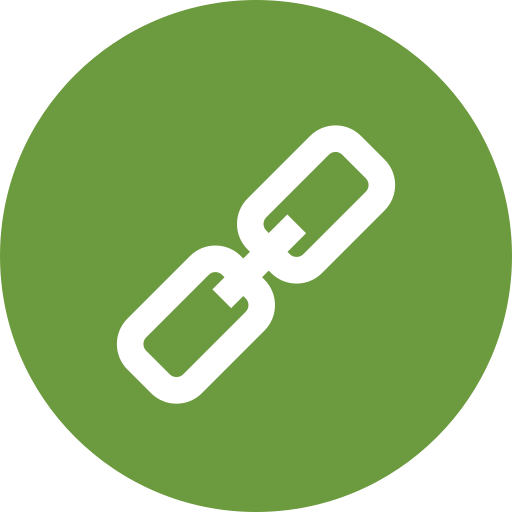| Product name | Per Pill | Savings | Per Pack | Order |
|---|---|---|---|---|
| 60 pills | $0.47 | $28.08 | ADD TO CART | |
| 90 pills | $0.40 | $5.90 | $42.12 $36.22 | ADD TO CART |
| 120 pills | $0.37 | $11.79 | $56.16 $44.37 | ADD TO CART |
| 180 pills | $0.34 | $23.59 | $84.24 $60.65 | ADD TO CART |
| 270 pills | $0.32 | $41.28 | $126.36 $85.08 | ADD TO CART |
| 360 pills | $0.30 | $58.97 | $168.48 $109.51 | ADD TO CART |
| Product name | Per Pill | Savings | Per Pack | Order |
|---|---|---|---|---|
| 60 pills | $0.44 | $26.27 | ADD TO CART | |
| 90 pills | $0.36 | $7.09 | $39.40 $32.31 | ADD TO CART |
| 270 pills | $0.25 | $49.64 | $118.19 $68.55 | ADD TO CART |
| 360 pills | $0.24 | $70.92 | $157.60 $86.68 | ADD TO CART |
Ranitidine, a histamine H2-receptor antagonist, is a widely used medication for treating various gastrointestinal conditions, including gastroesophageal reflux disease (GERD), Zollinger-Ellison syndrome, and peptic ulcers. Available in 150 mg and 300 mg strengths, ranitidine can be purchased online or through a prescription from a healthcare professional. In this article, we will delve into the details of ranitidine, its uses, and the various options for purchasing it.
What is Ranitidine?
Ranitidine is a medication that reduces the production of stomach acid, thereby alleviating symptoms such as heartburn, acid reflux, and stomach pain. It works by blocking the action of histamine, a chemical that stimulates the production of stomach acid. Ranitidine is available in various forms, including tablets, capsules, and injectable solutions.
Uses of Ranitidine
Ranitidine is used to treat a range of gastrointestinal conditions, including:
- Gastroesophageal reflux disease (GERD)
- Zollinger-Ellison syndrome
- Peptic ulcers
- Gastrointestinal bleeding
- Stress ulcer prophylaxis
Purchase Options for Ranitidine
Ranitidine can be purchased online or through a prescription from a healthcare professional. The following are some of the options for purchasing ranitidine:
| Option | Description |
|---|---|
| Order Ranitidine online | Purchase ranitidine online from a reputable pharmacy or online retailer |
| Buy Ranitidine with Visa | Purchase ranitidine using a Visa credit card |
| Purchase Ranitidine with PayPal | Purchase ranitidine using PayPal |
| Discount Ranitidine 300 mg | Purchase ranitidine 300 mg at a discounted price |
| Generic 300 mg Ranitidine | Purchase generic ranitidine 300 mg at a lower cost |
Some of the benefits of purchasing ranitidine online include:
- Convenience: Online purchase options allow you to buy ranitidine from the comfort of your own home
- Cost-effective: Online pharmacies and retailers often offer discounts and promotions
- Wide selection: Online retailers offer a wide selection of ranitidine products, including generic and brand-name options
How to Order Ranitidine Online
To order ranitidine online, follow these steps:
- Choose a reputable online pharmacy: Research and choose a reputable online pharmacy that offers ranitidine products.
- Select your medication: Choose the strength and quantity of ranitidine you need.
- Provide your prescription: If required, provide your prescription or medical information.
- Pay for your medication: Pay for your medication using a secure payment method, such as Visa or PayPal.
- Receive your medication: Receive your medication by mail or through a delivery service.
Tips for Purchasing Ranitidine Online
When purchasing ranitidine online, keep the following tips in mind:
- Check the authenticity: Ensure that the online pharmacy is authentic and licensed to sell ranitidine products.
- Read reviews: Read reviews from other customers to ensure that the online pharmacy is reputable and reliable.
- Check the price: Compare prices from different online pharmacies to ensure that you are getting the best deal.
- Check the shipping: Ensure that the online pharmacy offers secure and timely shipping.
Common Questions About Ranitidine
Here are some common questions about ranitidine:
- What is the difference between 150 mg and 300 mg ranitidine?: The 150 mg and 300 mg strengths of ranitidine refer to the amount of active ingredient in each tablet or capsule. The 300 mg strength is typically used for more severe conditions, while the 150 mg strength is used for mild to moderate conditions.
- Can I purchase ranitidine without a prescription?: In some countries, ranitidine is available over-the-counter (OTC) without a prescription. However, it is recommended to consult with a healthcare professional before purchasing ranitidine.
- Is generic ranitidine as effective as brand-name ranitidine?: Yes, generic ranitidine is as effective as brand-name ranitidine. Generic medications are required to meet the same standards of quality and efficacy as brand-name medications.
Conclusion
Ranitidine is a widely used medication for treating various gastrointestinal conditions. With the option to purchase ranitidine online or through a prescription from a healthcare professional, it is easier than ever to access this medication. By following the tips and guidelines outlined in this article, you can ensure that you are purchasing ranitidine safely and effectively.
Recommended Dosage
The recommended dosage of ranitidine varies depending on the condition being treated. The following are some common dosages:
- GERD: 150 mg twice daily
- Zollinger-Ellison syndrome: 150 mg three times daily
- Peptic ulcers: 300 mg twice daily
It is essential to consult with a healthcare professional to determine the best dosage and treatment plan for your specific condition.
Side Effects
Ranitidine can cause side effects, including:
- Headache
- Dizziness
- Nausea
- Vomiting
- Diarrhea
If you experience any of these side effects, consult with a healthcare professional for advice.
Interactions
Ranitidine can interact with other medications, including:
- Antacids: May decrease the absorption of ranitidine
- Warfarin: May increase the risk of bleeding
- Theophylline: May decrease the effectiveness of ranitidine
It is essential to consult with a healthcare professional before taking ranitidine with other medications.
By understanding the uses, purchase options, and potential side effects of ranitidine, you can make informed decisions about your treatment plan. Remember to always consult with a healthcare professional before purchasing or taking ranitidine.
Stomach acid, also known as gastric acid, plays a crucial role in the digestion of food in the human body. It is a mixture of hydrochloric acid, pepsin, and other digestive enzymes that break down proteins and fats into smaller molecules. However, an overproduction of stomach acid can lead to various health problems, including Zollinger-Ellison syndrome. In this article, we will delve into the causes, symptoms, and treatment options for Zollinger-Ellison syndrome, as well as explore the importance of stomach acid in the digestive process.
What is Stomach Acid?
Stomach acid is a natural substance produced by the stomach lining to aid in digestion. It is composed of:
| Component | Function |
|---|---|
| Hydrochloric acid | Breaks down proteins and fats into smaller molecules |
| Pepsin | Digests proteins into peptides and amino acids |
| Gastric amylase | Breaks down carbohydrates into simple sugars |
| Gastric lipase | Digests fats into fatty acids and glycerol |
The production of stomach acid is regulated by the brain, which sends signals to the stomach to release acid in response to food intake. The acid helps to break down food into smaller molecules, making it easier for the body to absorb nutrients.
What is Zollinger-Ellison Syndrome?
Zollinger-Ellison syndrome is a rare disorder characterized by the overproduction of stomach acid. It is caused by a tumor in the pancreas or duodenum (the first part of the small intestine) that produces excessive amounts of gastrin, a hormone that stimulates the stomach to produce acid. This leads to a range of symptoms, including:
- Severe heartburn and acid reflux: The excessive acid production can cause stomach acid to flow back up into the esophagus, leading to heartburn and acid reflux.
- Abdominal pain and diarrhea: The high levels of acid can irritate the stomach lining and intestines, causing abdominal pain and diarrhea.
- Weight loss and fatigue: The excessive acid production can lead to malabsorption of nutrients, resulting in weight loss and fatigue.
Causes of Zollinger-Ellison Syndrome
The exact cause of Zollinger-Ellison syndrome is not fully understood, but it is believed to be related to:
- Genetic mutations: Some people may be born with genetic mutations that affect the production of gastrin, leading to excessive acid production.
- Tumors: Tumors in the pancreas or duodenum can produce excessive amounts of gastrin, leading to Zollinger-Ellison syndrome.
- Infections: Certain infections, such as Helicobacter pylori, can increase the risk of developing Zollinger-Ellison syndrome.
Symptoms of Zollinger-Ellison Syndrome
The symptoms of Zollinger-Ellison syndrome can vary from person to person, but common symptoms include:
- Severe heartburn and acid reflux
- Abdominal pain and diarrhea
- Weight loss and fatigue
- Nausea and vomiting
- Bloating and gas
Diagnosis of Zollinger-Ellison Syndrome
Diagnosing Zollinger-Ellison syndrome can be challenging, as the symptoms are similar to those of other digestive disorders. The following tests may be used to diagnose Zollinger-Ellison syndrome:
- Endoscopy: A flexible tube with a camera is inserted through the mouth to visualize the stomach and duodenum.
- Blood tests: Blood tests can measure the levels of gastrin and other hormones in the blood.
- Imaging tests: Imaging tests, such as CT scans or MRI scans, can help locate tumors in the pancreas or duodenum.
Treatment Options for Zollinger-Ellison Syndrome
Treatment for Zollinger-Ellison syndrome typically involves a combination of medications and surgery. The goal of treatment is to reduce acid production, manage symptoms, and remove any tumors that may be causing the condition.
Some treatment options include:
- Proton pump inhibitors: Medications that reduce acid production in the stomach.
- Histamine-2 blockers: Medications that reduce acid production in the stomach.
- Surgery: Surgery to remove tumors in the pancreas or duodenum.
- Chemotherapy: Chemotherapy to treat cancerous tumors.
Complications of Zollinger-Ellison Syndrome
If left untreated, Zollinger-Ellison syndrome can lead to a range of complications, including:
- Esophageal stricture: Narrowing of the esophagus due to chronic acid reflux.
- Gastrointestinal bleeding: Bleeding in the stomach or intestines due to excessive acid production.
- Malabsorption: Malabsorption of nutrients due to excessive acid production.
- Cancer: Increased risk of cancer in the pancreas or duodenum.
Prevention of Zollinger-Ellison Syndrome
While there is no sure way to prevent Zollinger-Ellison syndrome, there are some steps that can be taken to reduce the risk of developing the condition:
- Maintain a healthy weight: Excess weight can increase the risk of developing Zollinger-Ellison syndrome.
- Eat a balanced diet: A diet rich in fruits, vegetables, and whole grains can help reduce the risk of developing Zollinger-Ellison syndrome.
- Avoid trigger foods: Avoid foods that can trigger acid reflux, such as citrus fruits, tomatoes, and chocolate.
- Manage stress: Stress can exacerbate symptoms of Zollinger-Ellison syndrome, so finding ways to manage stress, such as through meditation or yoga, can be helpful.
In conclusion, Zollinger-Ellison syndrome is a rare disorder characterized by the overproduction of stomach acid. While the exact cause of the condition is not fully understood, it is believed to be related to genetic mutations, tumors, and infections. Treatment typically involves a combination of medications and surgery, and it is essential to manage symptoms and prevent complications. By understanding the causes, symptoms, and treatment options for Zollinger-Ellison syndrome, individuals can take steps to reduce their risk of developing the condition and improve their overall health and well-being.
























